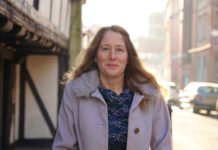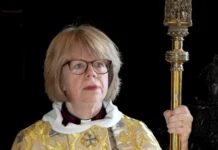Bishops denounce Indonesian oppression and call for the independence of West Papua
As Bishops of the Anglican Church in Aotearoa, New Zealand and Polynesia, we express our deep disappointment at the continued suppression by the Indonesian Government of the basic human rights of West Papuan people.
We stand with our sisters and brothers in West Papua in their struggle to determine their own political destiny, and we pray that the Indonesian government will halt all state-sanctioned abuse and violation of human rights there.
The House of Bishops of the Anglican Church in Aotearoa, New Zealand and Polynesia also calls upon each government represented within its jurisdiction[1] to clearly express support for the people of West Papua in the redress of their historical injustices.
We urge our governments to continue to draw attention to the sustained ethnic violence and ongoing denial by the Indonesian government of the first people’s right of self-determination, and the abuse of their natural resources by foreign corporations.
We also commend the political leaders of Pacific Island countries such as Vanuatu, the Republic of the Marshall Islands, and Tuvalu, who continue to draw international attention to the plight of the peoples of West Papua.
In March this year, the leaders of the Anglican provinces of Australia; Aotearoa, New Zealand and Polynesia; Melanesia and Papua New Guinea gathered in Fiji as the Oceania Anglican Fono – and this year they were joined by the Archbishop of Canterbury, Justin Welby.
The leaders heard harrowing stories of human rights violations in West Papua. At last year’s gathering, the Oceania Anglican leaders were moved by the passion of the Archbishop of Papua New Guinea, Clyde Igara, who proclaimed: “I am West Papua. I am Papuan”[2] – thereby acknowledging the unity and solidarity of all Papuans for the people of West Papua in their quest for independence.
The Indonesian occupation of West Papua began with the New York Agreement of 1962 – which saw The Netherlands transfer ownership of “Dutch New Guinea” (as it was then known) to Indonesia. The West Papuan people were given no voice in the process which led to that agreement.
Next year will mark 50 years since the so-called ‘Act of Free Choice’, in which the Indonesian government paid lip-service to the Agreement’s requirement that a ballot of West Papuans be later held so they could choose whether they wanted to exercise self-determination.
That electoral process was corrupt.
Since the “Act of No Choice” (as that electoral process is known among most Papuans) more than 500,000 people are believed to have been killed, and indigenous Papuans are now believed to be in the minority in their own land.
Since the Indonesian occupation West Papuan land – which is rich in its biological diversity – has been in demand by foreign multi-national mining, timber, palm oil and other corporations, some of which supply New Zealand markets. This has also led to ongoing environmental and human rights abuses.
As a Church we are called to advocate for the integrity of all human life as created in the image of God (Genesis 1:27).
So, we add our voices to those of our Baptist and Catholic brothers and sisters, and to the voices of other faith and secular organisations who condemn the abuses of humanity and the environment which continue to occur in West Papua.
The desire by the West Papuan people for self-determination is clear.
We therefore call on our governments to:
• Support calls from the UN Human Rights Council for greater transparency from Indonesia on its human rights record – including on matters raised by the UN special rapporteur after his visit to Indonesia last year;
• Investigate the sale of West Papuan-sourced goods such as palm oil, timber, gold, copper and oil which accelerate the marginalization of Indigenous West Papuan people from their own land, so New Zealand can restrict or ban the use of such products here;
• Support the continued efforts by the Pacific Islands Countries Coalition on West Papua (PICWP) to bring the issue of West Papua on to the agenda of the UN Committee on Decolonisation;
• Raise concerns over issues of transmigration from Indonesia and the continued appropriation and exploitation of land by Indonesian settlers, and the plight of indigenous people who are becoming a minority in their own land.
We also endorse the resolution by the Pacific Conference of Churches, as the regional ecumenical body, to nominate two Pacific church leaders to visit governments and heads of state in Papua New Guinea, Solomon Islands, Nauru, Samoa, and Fiji in the next two years to bring the concerns of the Pacific churches on West Papua to their attention.
As bishops of the Anglican Church in Aotearoa, New Zealand and Polynesia, we call on our governments to seek, through diplomacy, the peaceful redress of the human rights violations which are occurring amongst our West Papuan neighbours.
We strongly urge our governments to recognize West Papua’s status as an independent people and to advocate for West Papuan self-determination.
Signatories (Bishops of the Anglican Church in Aotearoa, New Zealand and Polynesia)
• Donald Tamihere, Pihopa o te Tairawhiti, Te Pihopa o Aotearoa, and Archbishop
• Philip Richardson, Bishop of Taranaki, Senior Bishop for Tikanga Pakeha, and Archbishop
• Fereimi Cama, Bishop-Elect of Polynesia
• Ross Bay, Bishop of Auckland
• Justin Duckworth, Bishop of Wellington
• Eleanor Sanderson, Assistant Bishop of Wellington
• Andrew Hedge, Bishop of Waiapu
• Ngarahu Katene, Pihopa o te Manawa o te Wheke
• Richard Wallace, Pihopa o te Waipounamu
• Peter Carrell, Bishop-Elect of Christchurch
• Steven Benford, Bishop of Dunedin
Footnote: The Anglican Church in Aotearoa, New Zealand and Polynesia consists of five Maori and seven Pakeha Dioceses/Amorangi in Aotearoa, New Zealand, and the Diocese of Polynesia, which covers Fiji, Tonga, Samoa and the Cook Islands.
The church is led by Archbishop Donald Tamihere (Tikanga Maori) and Archbishop Philip Richardson (Tikanga Pākehā). In the new year, they will be joined in leadership by the Rev Fereimi Cama (Tikanga Pasefika) – who has been elected as the next Bishop of Polynesia, and who will also be recognised as Archbishop.
[1] The Anglican Province of Aotearoa, New Zealand and Polynesia includes Aotearoa New Zealand, Fiji, Tonga, Samoa, America Samoa and the Cook Islands.
[2] Archbishop Clyde’s statement needs to be read in the PNG context. The first people of that island landmass are, despite their colonial history, still one people. They are Papuan – either side of the border which arbitrarily divides their country.



